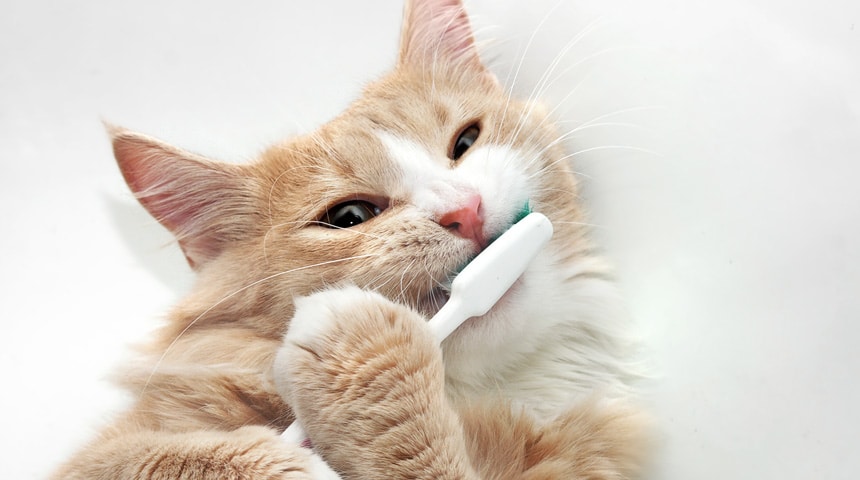
Does your cat have particularly bad breath? It could be periodontal or gum disease caused by the accumulation of plaque and tartar. You can prevent oral disease for your pet by establishing an easy and enjoyable dental care routine. Here's how to proceed.
Teeth cleaning
The best way to ensure your cat’s teeth clean and healthy is simple: you have to brush them. Brushing avoids the unpleasantness of bad breath and effectively prevents common oral diseases, such as gingivitis and periodontitis. Follow this method:
- Use a toothpaste specially formulated for pets.
- When your cat is calm, let him taste the toothpaste.
- Apply a little toothpaste on your finger or on a finger toothbrush and gently massage their gums and front teeth with a circular motion. Start with a few seconds and then, day after day, very gradually, make brushing last longer and go further backwards.
- When your cat gets used to his new teeth brushing sessions, you can use a toothbrush designed for pets.
- It is not necessary to brush his teeth on the side of the tongue: brushing the outer surface is sufficient.
Ideally, brush your cat's teeth every day. Throughout the teeth brushing session, praise him and talk to him nicely. Afterwards, give him a treat to reward his patience and good behaviour.
The professional dental exam
Like humans who visit the dentist regularly, your cat must meet the vet for a professional dental exam every year. Our veterinary teams offer full dentistry services, including dental cleaning and additional care such as radiology and tartar removal.
Protect your cat’s oral health every day
Besides brushing and the annual dental exam, there are different ways to protect your cat’s oral health.
Here are a few ways to help:
- Choose a healthy and balanced diet as advised by your veterinarian,
- Do not give him sweets and leftovers, and
- Give your cat chews to limit tartar and plaque buildup.
When oral hygiene is not respected, cats may show signs of significant dental disease as early as three years old. Infection, pain, bleeding, and tooth loss are major problems that can rapidly deteriorate your cat’s health.
Using the latest technology, our hospitals have all the specialized instruments for feline dentistry. Our technical staff and veterinarians offer the best dental care for the health of your cat.

